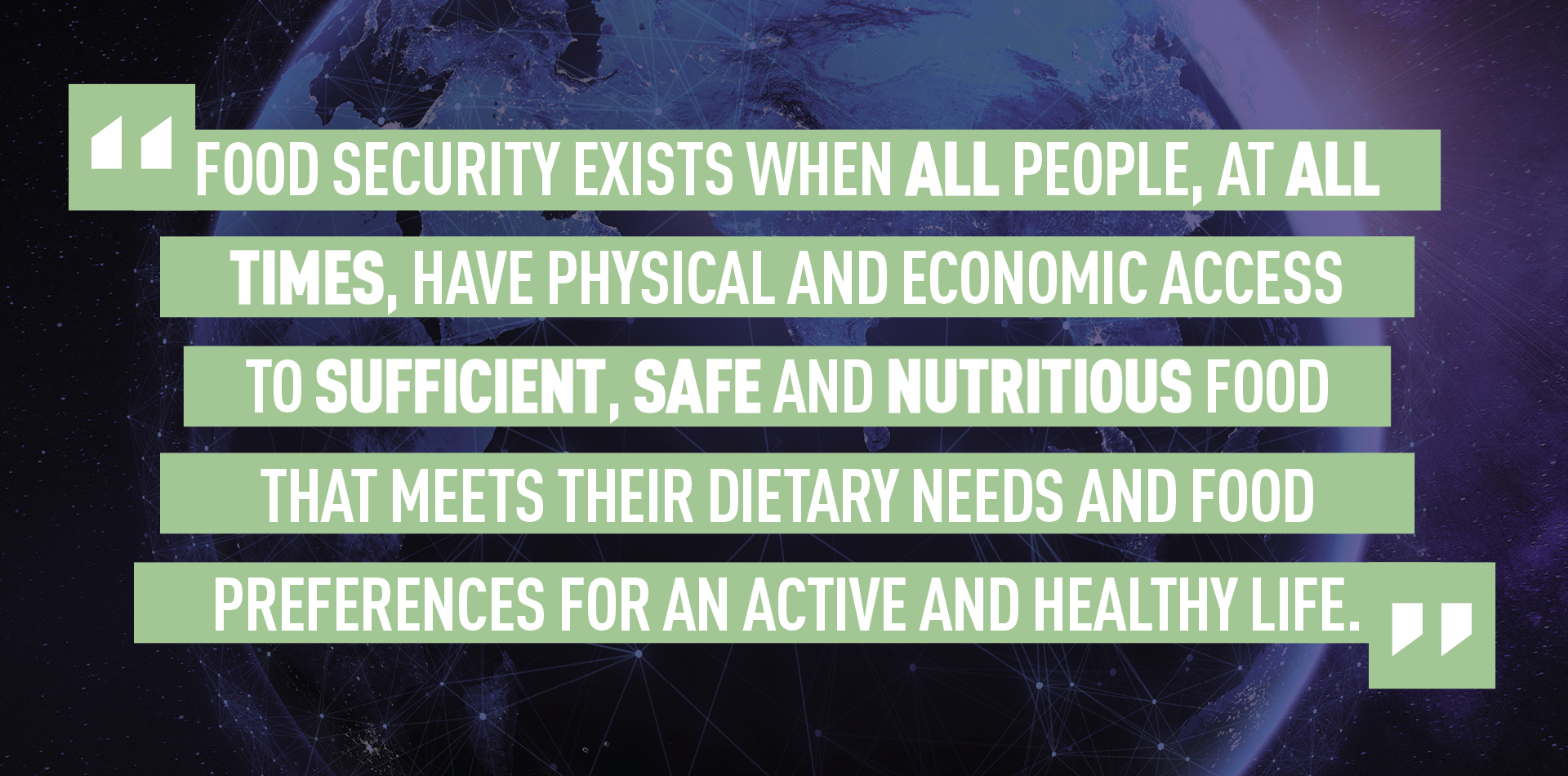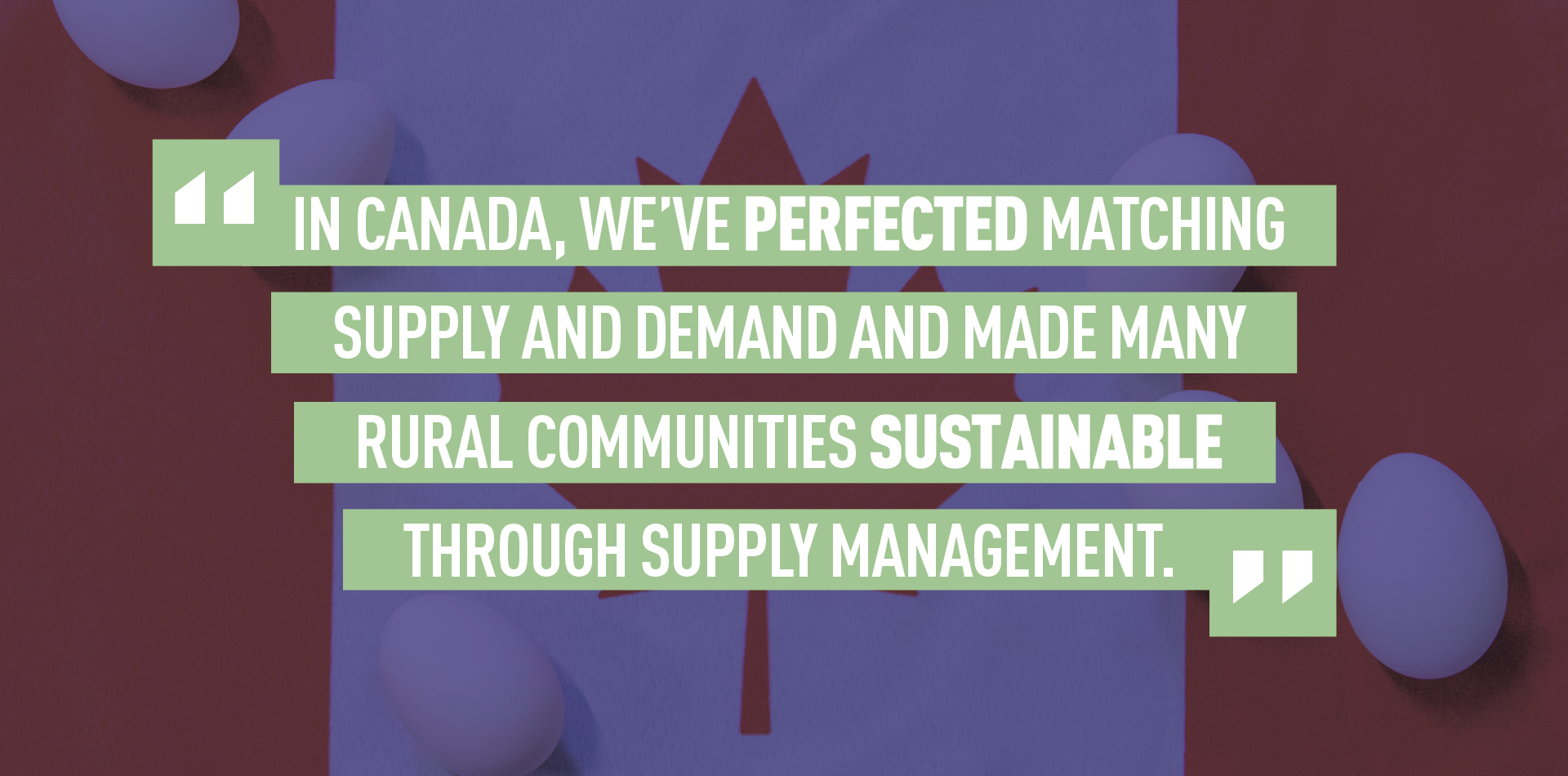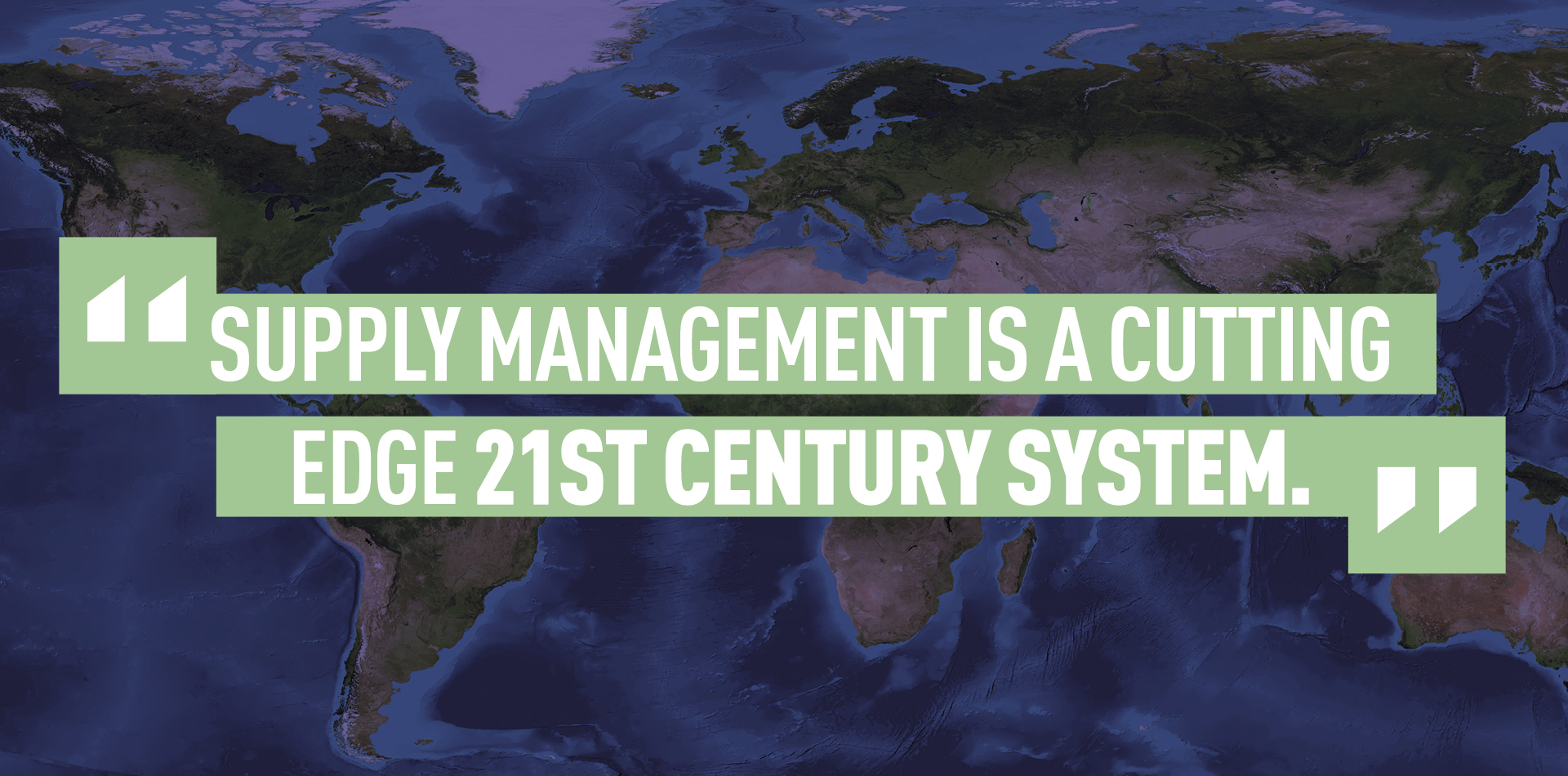
An expert explains how supply management supports Canadian food security
By Egg Farmers of CanadaShifting geopolitical agendas and international trade disruptions have prompted Canadians to think about supply chains in a new way—and have shown us the importance of a strong domestic supply of locally produced goods. This is especially true when it comes to food.
Fortunately, Canada’s system of supply management ensures we benefit from a consistent supply of high-quality local eggs, poultry and dairy produced by Canadian farmers—a powerful policy when it comes to Canadian food security.
“In Canada, we’ve perfected matching supply and demand and made many rural communities sustainable through supply management,” says Dr. Bruce Muirhead, University of Waterloo historian and Egg Farmers of Canada Research Chair in Public Policy. “Those supply-managed sectors don’t rely on foreign imports, and we’re protected from fluctuations. That’s the kind of food security we’ve built in Canada.”

According to the Food and Agriculture Organization of the United Nations, “food security exists when all people, at all times, have physical and economic access to sufficient, safe and nutritious food that meets their dietary needs and food preferences for an active and healthy life.”1 The uniquely Canadian system of supply management supports food security by bringing added stability to food production and helping protect supply chains from disruptions and shocks. It ensures that Canadian demand for these foods is met by made-in-Canada production. Farmers earn a fair return and consumers enjoy a steady supply of local, high-quality food.
Dr. Muirhead says that Canada’s system of supply management supports values and attitudes that Canadians treasure. In addition to supporting food security, it reflects Canadian notions of food sovereignty that emphasize local food, stability for producers and consumers, and a more environmentally sensitive agriculture sector.

To understand how supply management supports food security, Dr. Muirhead points to the state of Canadian agriculture prior to supply management.
“Before supply management, pretty much every year there would be an egg shortage and prices would go up, and then farmers would go massively into egg production, causing market prices to collapse,” he told The Globe and Mail.2 “There was great concern about the longevity of domestic agriculture and how egg farmers would continue to produce and survive if prices went below certain levels.”
But the benefits of supply management go far beyond a stable supply of food. “Supply management makes for vibrant rural communities; allows farmers to participate in Canadian life in ways that farmers in other parts of the world can’t,” says Dr. Muirhead. “It means that farmers can adopt the latest technologies because they can afford to do so; it means banks will loan them money to grow, in a way that banks won’t loan to American farmers; it allows for better animal welfare. Supply management is golden. It works for all Canadians.”

These benefits for Canadians and Canadian farmers are why Dr. Muirhead thinks that supply management is the agriculture system of the future—one we’ll hopefully see implemented in more countries around the world in coming decades.
In a time of global insecurity, building Canadian food security has never been so essential. Supply management is a critical policy for protecting and supporting food security for the present and the future.
As Dr. Muirhead says: “Supply management is a cutting edge 21st century system.”
1 Food and Agriculture Organization of the United Nations (June 2006). Food Security Policy Brief. Issue 2. fao.org
2 Matching demand and made-in-Canada eggs with supply management framework (September 2020). The Globe and Mail. theglobeandmail.com